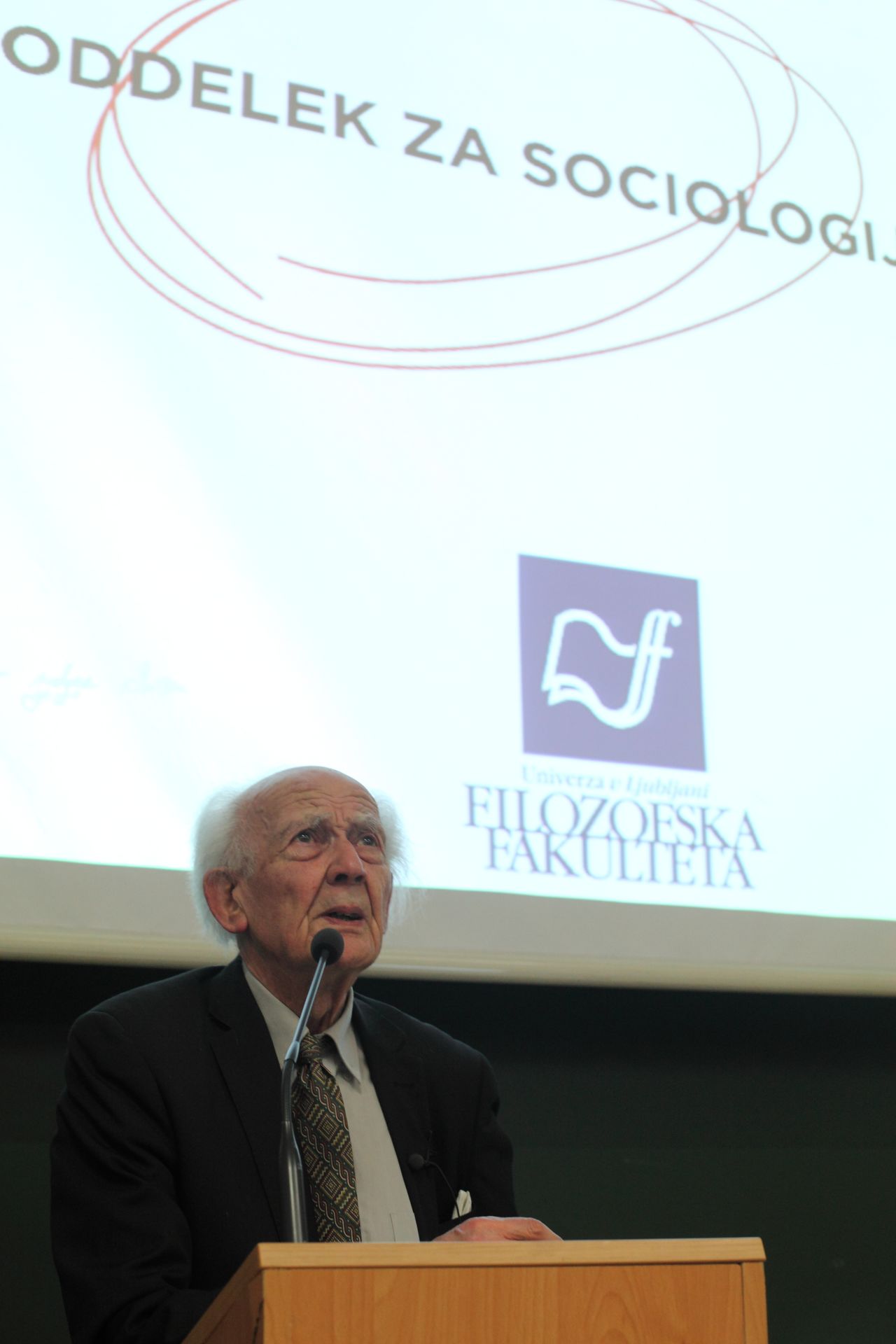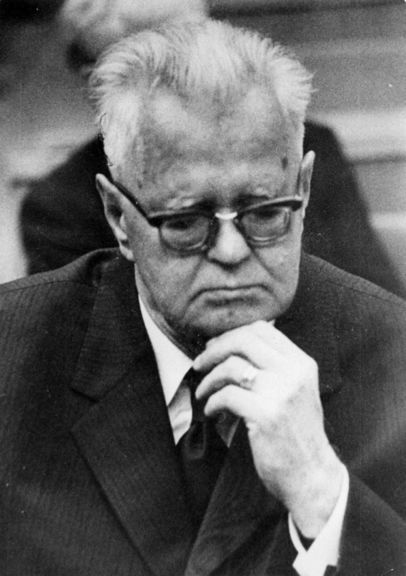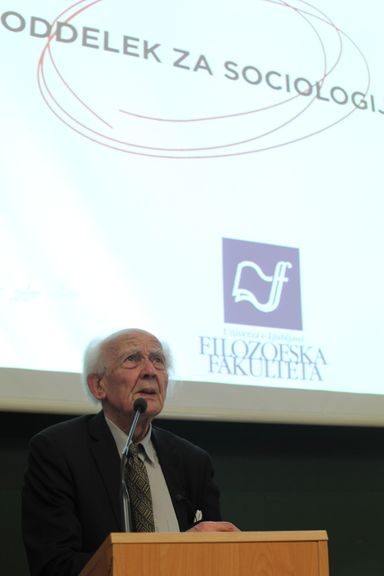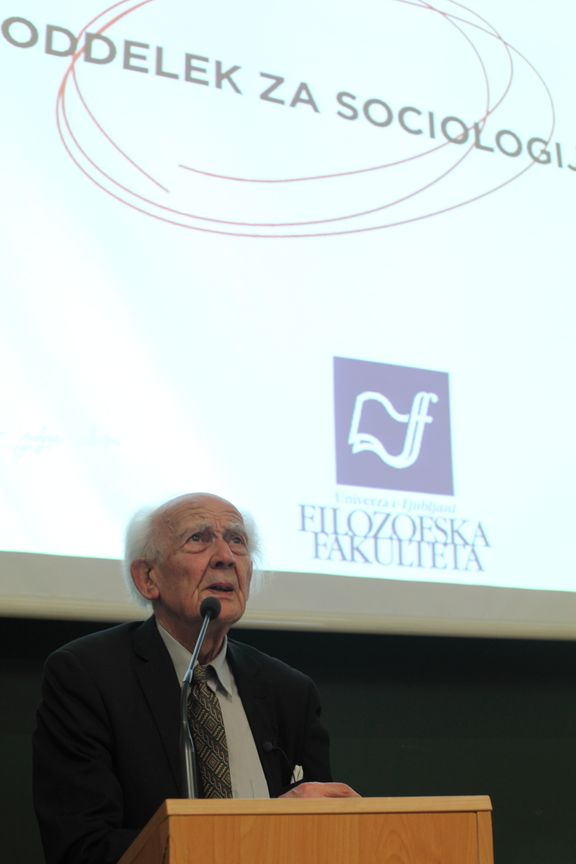Department of Sociology, University of Ljubljana

-
14 May 2014
CroatiaZagrebKino EuropaTheories of Ideology, a lecture by Rastko Močnik (Department of Sociology, University of Ljubljana), at the 7th Subversive Festival
History
The very first beginnings of Sociology studies in Slovenia date to 1927/28 when the course on Sociology was lectured by the philosopher France Veber. In brief, after sporadic attempts and after the Second World War there were a few courses in Dialectical and Historical materialism, taught by Cene Logar, Vladimir Seliškar and Jože Goričar.
On the initiative of the sociology study group at the Faculty of Arts and on the initiative of Boris Ziherl from the Institute for Sociology, in 1960 the Department of Sociology was formally established.
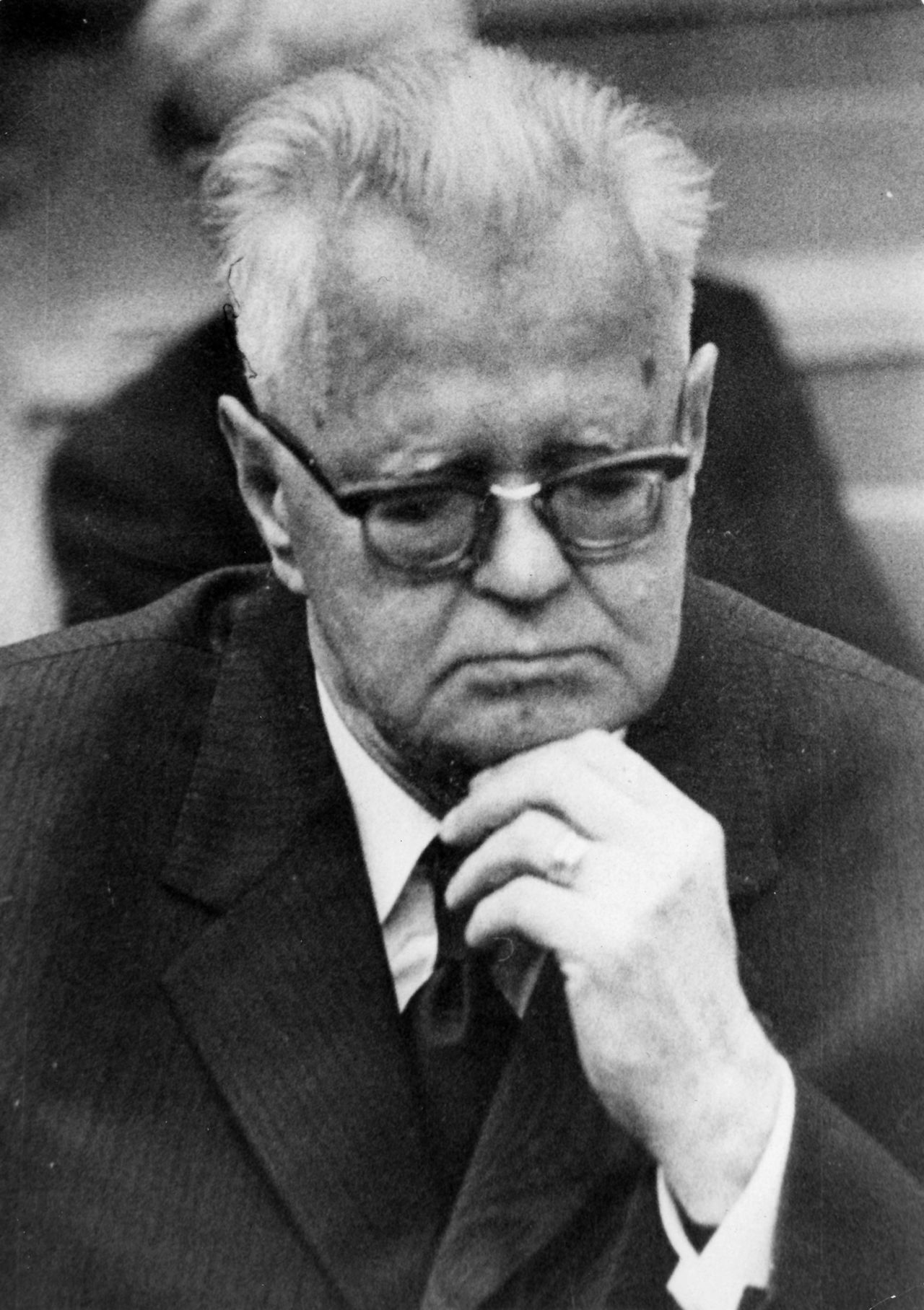 Academician Boris Ziherl (1910–1976), co-founder of the Department of Sociology, Faculty of Arts, University of Ljubljana
Academician Boris Ziherl (1910–1976), co-founder of the Department of Sociology, Faculty of Arts, University of Ljubljana
A major reorganisation of the department followed shortly after. The study programme for the independent profession in sociology was transferred to the later established Faculty of Social Sciences. The focus of the Department of Sociology at the Faculty of Arts remained mostly in the general field of educating the future pedagogic workers for sociology and social sciences.
In the years 1981/82 the undergraduate study programme of Sociology of Culture was introduced, the postgraduate study programme followed a year after. It resulted from the interest in sociocultural aspects in the field of humanities and social sciences within the framework of Marxist sociology and historical materialism. The academic staff, especially the late Iztok Saksida, encouraged the research in the field of social anthropology and comparative studies in natural sciences (physical anthropology, palaeoanthropology, biology, and primatology).
Today
Numerous fields of research were developed in the 50 years history of the department. The first generation initiated the study of sociology of culture (Boris Ziherl) and sociology of law (Anton Žun), enriched the theory of social formation by researching the Asiatic mode of production (Ludvik Čarni) and was among the esteemed international researchers of Stalinism (Marjan Britovšek). The next generation partly continued the set up work, while also introducing several new study fields that are continuously being developed by the younger, third generation. For the last 30 years, the research focus is on contemporary theories of culture, methodological structuralism and linguistic analysis, as well as semantics and the critique of ideological social formation (Rastko Močnik, Drago Braco Rotar).
All along, an important emphasis was put on the studies of general sociology, sociology of religion (Marko Kerševan), classical sociological thought, nationalisms and globalisation (Rudi Rizman), sociology of culture and modern media (Jože Vogrinc, Ksenija Vidmar Horvat), classical social movements and historical sociology (Avgust Lešnik), sociology of science and art (Igor Škamperle), women and gender studies (Milica Antić Gaber, Roman Kuhar). The research field of social anthropology that was largely developed in the late eighties (Iztok Saksida, Bojan Baskar) is still finding its way to the bologna study reform programmes.
Selected courses
Along with the core courses (Introduction to Sociology of Culture, Discursive Analysis, Theory of Ideology, Sociology of Religion, Sociology of Media, etc.), the Department has broadened and added several new selected courses in the Sociology of Culture and Sociology (e.g., Sociology of Globalisation, Sociology of Books and Reading, Popular Music, Sociology of Youth Culture, Introduction to Gay and Lesbian Studies, Lifestyles and Family Practices, Sociology of Intellectualism and Intellectuals, etc.).
The Sociology of Culture programme provided different social science and humanities courses and a body of selected subjects: Women's Studies and Feminist Theory, Sociology of Cinema, Social Anthropology of Music, Sociology of Drama, Theatre and Ritual, Historical Anthropology, Journalistic Genres. Both Sociology programmes offered at the Department of Sociology allowed interdepartmental connections with other majors offered by the University of Ljubljana's Faculty of Arts as well as with Political Science and Journalism from the Faculty of Social Sciences and from the Faculty of Theology in Ljubljana.
Institutional and international cooperation
Institutional links within Slovenia have been made with the Faculty of Postgraduate Studies in Humanities at the Institutum Studiorum Humanitatis (ISH), the Peace Institute - Institute for Contemporary Social and Political Studies, in the past connections have been established with the Central European University Budapest, the European Workshop of International Historical Research on Comintern, the University of Bologna, the University of Forli, the European University Institute, Florence, the University of Vienna, the Institut fur Höhere Studien, Vienna, and the University of Strasbourg.
Besides the mentioned international links, the CEEPUS and SOCRATES/ERASMUS student exchange programme is possible at different European universities in: Belgium (Catholic University in Louvain, University of Antwerpen), Italy (University of Bologna), the Netherlands (University of Utrecht), Portugal (University of Lisbon), Slovakia (Comenius University in Bratislava), Spain (University of Salamanca), and Turkey (Boğaziçi University, Gaziantep University).
The Department of Sociology is active in organising guest lecturers, recent international guests have included Will Kymlicka, Nira Yuval-Davis, Judith Stacey, Samir Amin, Noam Chomsky and Umberto Eco (lectures are accessible at the department's website).
Students at the Department of Sociology are active in the sociology students' association Sociopatija ("Sociopathy"), which organises excursions, lectures and social events.
The library and publishing
As a part of the Central Humanities Library, the Department of Sociology keeps its own library with approximately 26,000 titles.
The department has published several monographies within the Ljubljana University Press, Faculty of Arts. On the occasion of its 50th anniversary the department published a jubilee collection of sociological discussions.
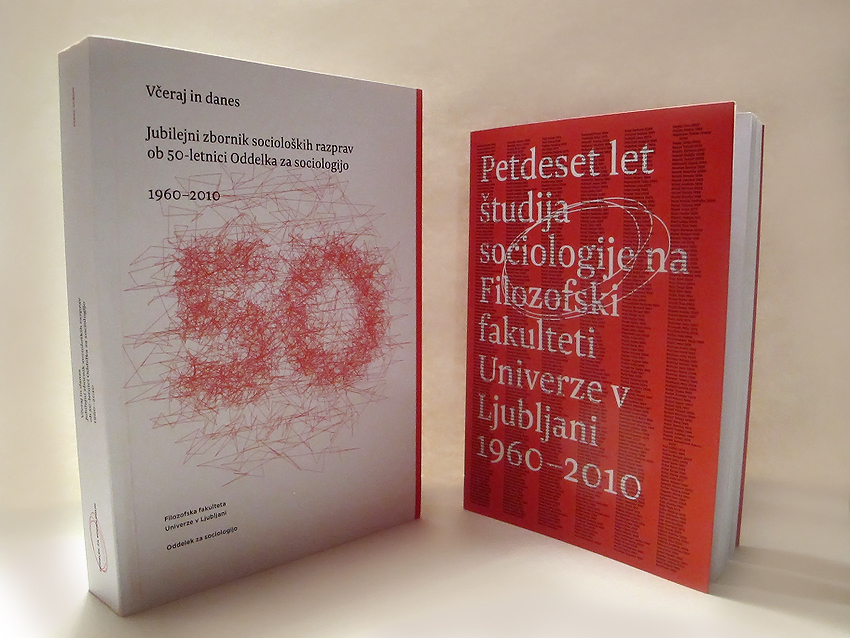 Jubilee collections of Department of Sociology's research and pedagogical work, published on the occasion of the department's 50th anniversary in 2010
Jubilee collections of Department of Sociology's research and pedagogical work, published on the occasion of the department's 50th anniversary in 2010


